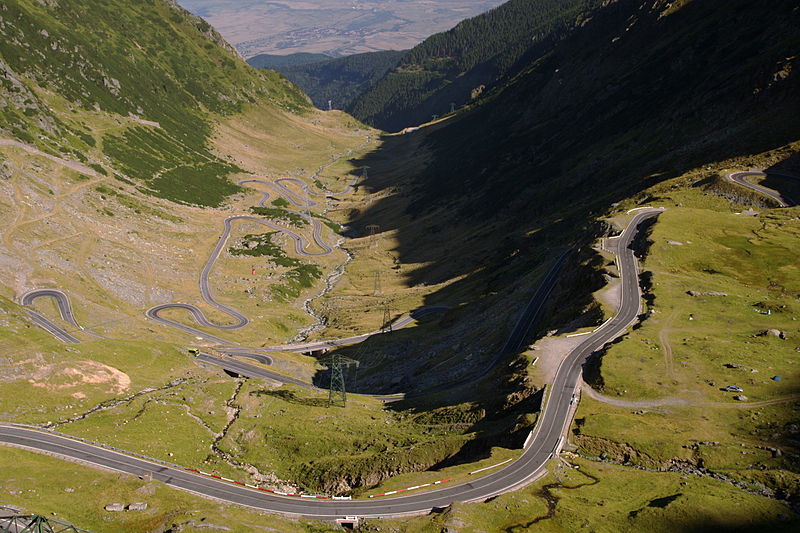(1 Kings 3:5–12; Romans 8:26–39; Matthew 13:31–33, 44–52)
PDF | Audio (soon, or Dropbox) | Text:
Do you ever get jealous of the disciples? Not for the mighty deeds or the heroic deaths, necessarily, but for the simple fact that they met and knew the Lord as none of us can?
I’m quick to assume that faith came easy for the women and men who knew Jesus of Nazareth during his incarnate lifetime. And yet we have good reason to believe that wasn’t true.
Others saw his signs, his teachings, his authority, and yet they did not believe. The apostles had it straight from his mouth that he would die and rise again, and yet by all accounts they gave in to fear and hopelessness, before even his crucifixion in most cases.
There are a lot of truisms to extrapolate from scripture, and one of them is surely this: If it’s proof or certainty we’re after in matters of faith, we’re barking up the wrong tree. But I wonder if we can’t do better than proof.
* * *
An elderly monk of a friend of mine’s acquaintance was once asked how his faith had changed over the course of his lifetime. I’ll never forget his answer: “I’m less certain. But I’m more convinced.”
That’s the answer of a man who’s seen some things, endured some things, who’s lost love ones, celebrated unexpected blessings, let go of earthly treasure and the illusion of control.
“I’m less certain. But I’m more convinced.”
That answer taught me that to be convinced, to be persuaded, is a dynamic process. It’s a lifelong experience, a full-body knowing, a deep but simple trust in a relationship that has passed the test of time.
The Apostle Paul is a man convinced. And I think it’s important that we understand why.
Don’t put too much stock in his dramatic conversion story. I don’t dispute the claim that he was struck blind on the road to Damascus by an encounter with the Risen Lord. I just think, on it’s own, the experience wasn’t what made the difference for Paul, not in the long run.
Sure, it was a touchstone, a turning point, a close encounter with a grace as raw and powerful and true as any we can imagine. But it couldn’t be enough. It couldn’t be enough to form a faith the likes of which is on display in today’s lesson from Paul’s Letter to the Romans:
Who will separate us from the love of Christ? Will hardship, or distress, or persecution, or famine, or nakedness, or peril, or sword? … No, in all these things we are more than conquerors through him who loved us. For I am convinced that neither death, nor life, nor angels, nor rulers, nor things present, nor things to come, nor powers, nor height, nor depth, nor anything else in all creation, will be able to separate us from the love of God in Christ Jesus our Lord. (Romans 8:35, 37–39)
Stunning, isn’t it? Gorgeous. Transcendent even. But the prose itself, even the idea itself, can’t be the point for us. Verbal pyrotechnics can impress and even move us, like Jesus’s fantastic signs and wonders. Stirring testimony can set us on a new path, not unlike the one Paul started walking in temporary blindness, while he was still known by a different name.
But I think the experience that really has the power to convince, to get in deep in our bones and our spiritual muscle memory, is captured in the space between this passage and one I like to think of as its first draft.
There’s a stretch in the Second Letter to the Corinthians where Paul “boasts in the Lord,” testifying to the experiences that he’s been through for the sake of the gospel. The really dramatic part recounts his sufferings:
Five times I have received from the Jews the forty lashes minus one. Three times I was beaten with rods. Once I received a stoning. Three times I was shipwrecked; for a night and a day I was adrift at sea; on frequent journeys, in danger from rivers, danger from bandits, danger from my own people, danger from Gentiles, danger in the city, danger in the wilderness, danger at sea, danger from false brothers and sisters; in toil and hardship, through many a sleepless night, hungry and thirsty, often without food, cold and naked. (2 Cor 11:24–27)
Now that is a list of dangers, toils, and snares if ever I’ve heard one.
I like this passage because it’s so real and concrete: “Look at what I’ve been through for God!” he shouts to his detractors. Paul remembers these experiences all too well, and he’s not afraid to get specific.
Our passage from Romans comes in a quieter, reflective moment. Notice that he tells us not what he’s done, but what he’s learned, which is that God was with him through all of it, that hardship, distress, etc., never had a chance against the power of the love of God, that the past, the future, the powers of earth and heaven and death itself are as nothing compared to Christ’s abiding presence.
From one text to the other, “I’m still here with God” turns to “God will always be here with me, with us.” We can almost hear Paul borrowing the words of our latter-day hymn to finish it all off: “’Tis grace that brought me safe thus far and grace will lead me home.”
* * *
The point is this: to be convinced in our faith is to take stock of our life with God and our neighbor, in all its ups and downs. It’s to be slowly persuaded that all the high drama and all the numbing tedium and the joys big and small were indeed working together for the good by God’s power to transform and redeem.
To be convinced is to let it all wash over us and sink in, to move beyond “When will you show me a sign?” to “How can I keep from singing?” Of course we can’t do this in our own time or on our own power.
It’s a lifelong process, a tiny seed of faith becoming a tree wide and strong. It’s a costly process, the faithful pursuit of a pearl of great price. It’s the transmutation of the core of our being, hearts of stone giving way to pure, persistent love.
How could we hope to effect this change without the grace of God? It’s foolish to try to earn this reward, but that doesn’t stop us most of the time. The trick is to learn to shape our efforts as faithful responses to God’s gifts and deliverances. And in that department we have lots of ways to practice.
An idea of such a discipline for today is to pilfer from our patron: why not make your own list of the dangers and the delights of your life, of the arc of your transforming encounters with the mystery of love and hope and peace. It doesn’t have to be all Damascus, shipwrecks, and swords.
If your sounds more like the 2 Corinthians passage than the Romans, then there’s no doubt you’re in touch with the rich contours of your own personal walk with God. If it sounds more like the Romans, then perhaps you’re starting to see how your experience fits into the even bigger story about the people of the way and the God who is with us on the way.
The process will be tender and difficult. Some of you have engaged it in Pilgrims, drawing the ups and down in your life and your experience of the closeness, or the distance, of God in the midst of them.
Yes, the process will be hard. But for most of us, by the end of it, we become a bit more persuaded of Paul’s deep conviction, that nothing can separate us from the love of God in Christ Jesus our Lord.
Not layoffs or transfers, not abortions or miscarriages, not defeats in the right battles or victories in the wrong ones, not failed finals or terrifying diagnoses, not panics in the night or failures of nerve, not divorces or bad credit or terrible decisions or disasters beyond our control, not even the suffering or death of a person most dear to us can separate us from the love of God.
We may not know that love, we may doubt it, we may even reject it, but Christ is still there in our hearts, the Spirit is still moving all around us. Sighs too deep for words aren’t the half of what God is praying and doing in us, in our finest hours and in our darkest ones.
I can’t prove it to you. Neither can Paul, for that matter. But the grace of God in Christ, and the experience of a lifetime of love, can convince us. It might be the only thing that can.
Image credit: Transfagarasan-north by Michał Sałaban via Wikimedia Commons (CC BY-SA 3.0)


